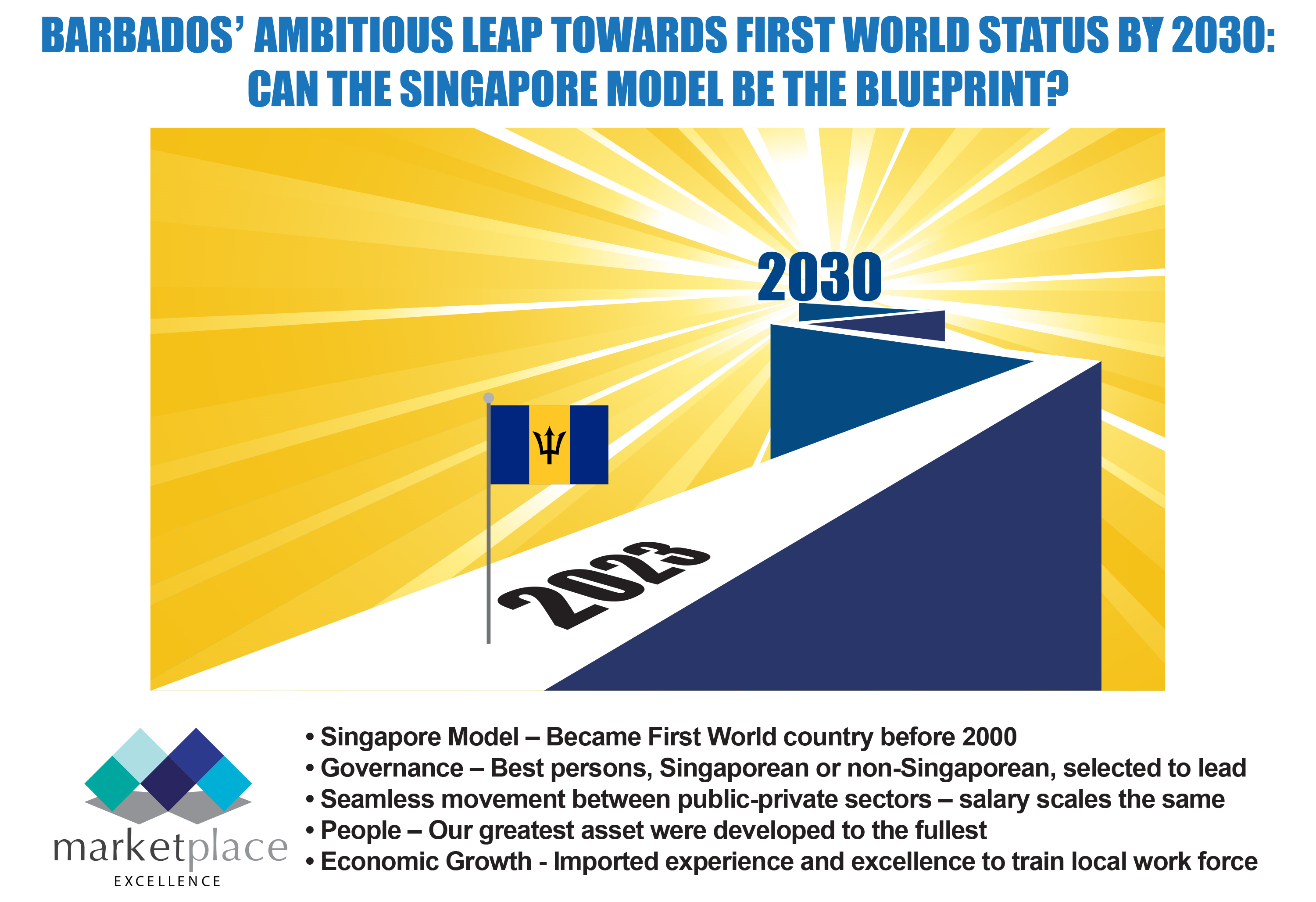“Blessed are those who hunger and thirst for righteousness, for they shall be satisfied.” – Matthew 5:6
As the Caribbean charts its course through the choppy waters of economic development, Barbados’ Prime Minister Mia Mottley has set a lofty goal: to achieve first world status for the nation by 2030.
Drawing inspiration from the remarkable success story of Singapore, Mottley’s vision is both ambitious and admirable. But can the Barbadian economy truly emulate the Singapore model and ascend to the echelons of global prosperity within a decade?
Singapore, a small island nation that swiftly transformed itself from a Third World country to a First World powerhouse before the turn of the millennium, serves as an exemplar of focused governance and rapid progress.
The Singaporean trajectory is marked by the meticulous selection of leaders, irrespective of their national origin, who have consistently upheld the country’s core values and economic vision. Mottley’s decision to expose herself to the opinions of the best global minds resonates deeply with this aspect of the Singaporean model.
The Singapore model offers valuable insights, but it must be adapted to the unique challenges and opportunities that Barbados faces.
Achieving First World status demands a holistic approach that encompasses governance, education, economic diversification, and social development.
One of the linchpins of Singapore’s success is its commitment to a seamless interplay between the public and private sectors. The equalization of salary scales between these sectors eradicated corruption and motivated the workforce to perform at its optimum, bolstering economic growth. Mottley’s vision of bridging the gap between these sectors is a promising step toward promoting efficiency and innovation.
Central to the transformation of any nation is the development of its people. Barbados, often referred to as the “Gem of the Caribbean”, possesses a talented populace brimming with untapped potential. Prime Minister Mottley’s determination to nurture this human capital could very well be the driving force behind the nation’s success. By investing in education, health care and skills training, Barbados can ensure that its citizens are equipped to contribute to the country’s growth and prosperity.
Yet, the Singaporean model isn’t a one-size-fits-all solution. Singapore’s unique geographic location, strategic trading ports, and early industrialization provided the nation with a head start other nations may not possess. The challenge for Barbados lies in adopting the core principles of the Singaporean approach – Connectivity, Openness, Reliability and Enterprise – while adapting them to its own unique context.
Prime Minister Mottley’s plan also highlights the importance of encouraging Barbadians to return home and importing experience and excellence to develop the local workforce. This approach mirrors Singapore’s early reliance on foreign expertise to kickstart its transformation. By bringing in experts and partnering with international organizations, Barbados can acquire the knowledge and skills needed to fast-track its development.
However, amidst the optimism, challenges abound. Achieving First World status requires not only strategic governance but also social and economic reforms. Addressing income inequality, diversifying the economy, and building a robust infrastructure are all critical components. Furthermore, the timeline of a mere decade might prove overly ambitious given the depth of the transformation required. But it is important to motivate the populace by presenting a plan with timelines in place.
As the nation embarks on this challenging journey, it is imperative to remain realistic about the obstacles ahead while harnessing the spirit of determination that defines the Barbadian people.
If successful, Barbados’ ascent could serve as an inspiring case study for other small island nations seeking to realize their own developmental dreams.

(Dr. Basil Springer GCM is a Change-Engine Consultant. His email address is basilgf@marketplaceexcellence.com. His columns may be found at www.nothingbeatsbusiness.com).
